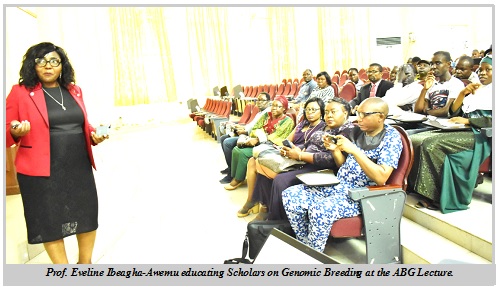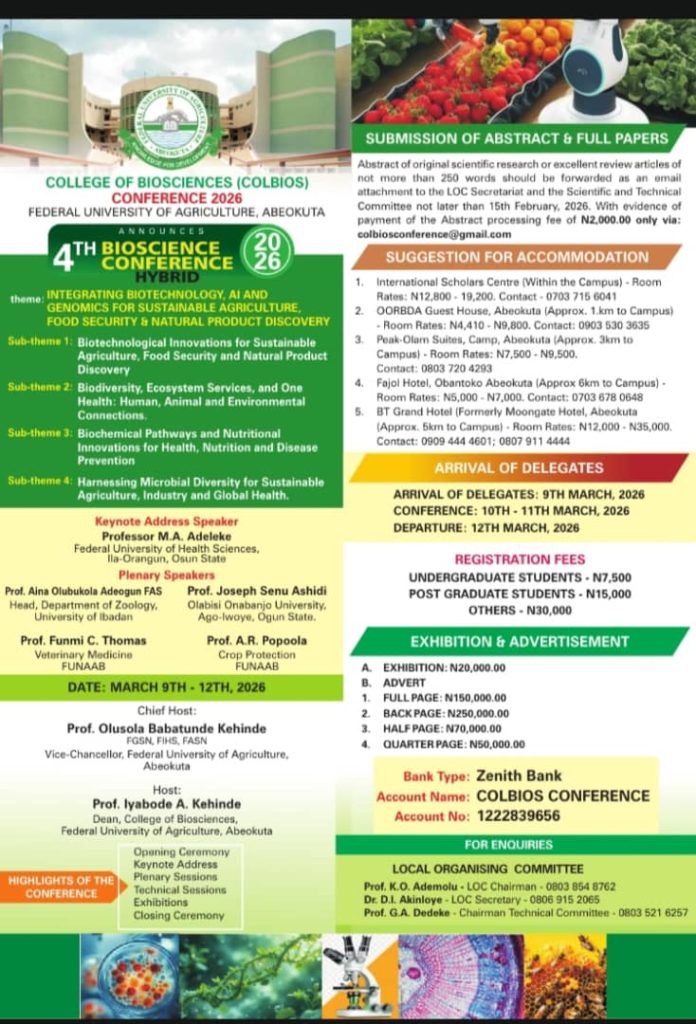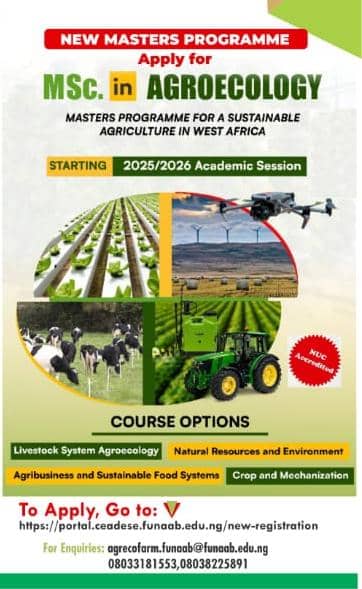Last Updated on October 28, 2019 by
Prof. Eveline Ibeagha-Awemu a Research Scientist with the Agriculture and Agro-Food Canada who also doubles as an Adjunct Professor at the McGill University in Canada, has called for the need to urgently develop strategies to increase food and animal production in our society to meet the growing human population.
Professor Ibeagha-Awemu said this while delivering a Lecture titled “Genome to Phenotype: Knowing the Drivers of Sustainable Livestock Production and Health”, organized by the Department of Animal Breeding and Genetics (ABG), in the College of Animal Science and Livestock Production (COLANIM).
In her presentation, the don noted that the level of animal productivity in most developing countries can hardly address the increasing human demand for animal products as well as offer environmental protection.
She revealed that today, in most Western Countries, advances in molecular genetics, next-generation sequencing, genotyping and bioinformatics techniques have paved the way for genomic breeding, which has led to tremendous gains in milk production traits.
The Lecturer stated that at the initial stage of breeding, the objectives were only driven by market demands for increased yields which neglected certain traits, such as fertility and health, and the neglect of the environmental impact of livestock production. However, according to her, today’s breeding objectives have expanded to include new traits as well as curbing environmental impacts.
She noted that the effective exploitation of genomic variation and its interacting factors for livestock improvement requires development of the necessary tools for specific environments, know how, funding and collaborative efforts.
Prof. Eveline Ibeagha-Awemu research focuses on using next-generation sequencing technologies and bioinformatics tools to characterise genetic markers and epigenetic marks associated with disease and production traits in dairy cattle and their interactions with nutrients.









